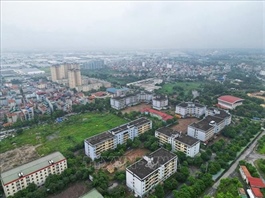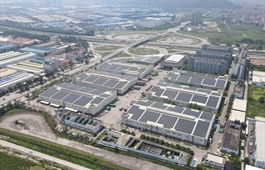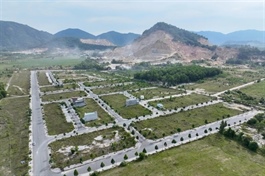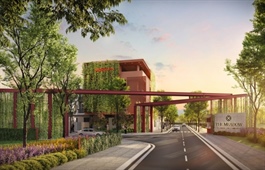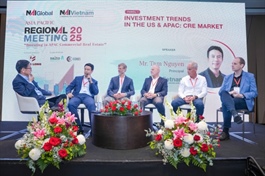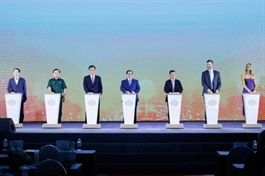Factors boosting the expansion of eco-industrial parks
Factors boosting the expansion of eco-industrial parks
The transformation of traditional industrial parks into eco-parks is accelerating. Nguyen Tram Anh, technical expert at the United Nations Industrial Development Organisation, spoke to VIR’s Kim Oanh about the factors contributing to the expansion of this model.
Guidelines in Circular No.05/2025/TT-BKHDT were made effective in March on the development of eco-industrial parks (eco-IPs). How do you evaluate the role of this in clarifying regulations about eco-IPs?

Nguyen Tram Anh, technical expert at the United Nations Industrial Development Organisation |
The circular has specified the criteria for transitioning from the traditional IP model to an eco-IP and for constructing new eco-IPs.
Additionally, it provides detailed guidelines on the process of transitioning and building new eco-IPs, as well as detailed instructions for businesses to obtain certification (for example, guidance on where to submit applications, response waiting times).
Beyond these two processes, the circular also includes provisions for monitoring compliance after an IP or manufacturing facility is certified as ecological.
The entire process is formalised through reports. Circular 05 includes detailed reports on the process of establishing industrial symbiosis models, reports on cleaner production processes, reports on monitoring procedures, and more.
The detailed elaboration of legal content has made it easier for businesses to carry out these tasks, thereby facilitating a faster and smoother transition from traditional IPs to eco-IPs. These reports will provide businesses with a legal basis to implement their projects.
These guidelines in the circular do not create additional burdens for businesses, but rather simplify procedures by utilising existing reports and supplementing them with necessary information, such as reports on cleaner production processes or industrial symbiosis development.
What are the policies supporting eco-IPs issued by central agencies and localities?
The most critical step in promoting the widespread adoption of the eco-IP model is establishing a system of competent agencies within the current legal framework, with clearly defined functions and responsibilities for policy planning and implementation.
At the national level, it is essential to establish a national steering committee for the development of eco-IPs. This committee will have the authority to direct and coordinate between central ministries and provincial people’s committees. The steering committee would serve as the central body and plays a crucial role in developing and overseeing the implementation of policies for transitioning to and establishing new ones.
Additionally, there should be national support programmes for transitioning to eco-IPs, focusing on mobilising financial resources, personnel, and coordinating the allocation of resources to localities.
People’s committees are responsible for investments in constructing, upgrading, renovating, and repairing technical and social infrastructure both within and outside the boundaries of existing IPs to connect and support businesses in implementing industrial symbiosis and transitioning to eco-IPs.
Besides that, localities will also support the construction of new eco-IPs and attract investment. They will simultaneously support science, technology, and tech transfer to help businesses in IPs improve management and operational processes, innovate production technologies, reuse raw materials, and use resources efficiently.
IP management authorities will assign a public service unit under their authority or a suitable unit to perform the function of developing and providing information and databases on efficient resource use and cleaner production. They will also lead the provision of information and data to monitor and evaluate the effectiveness of eco-IPs and update relevant information into the information system on IPs and economic zones.
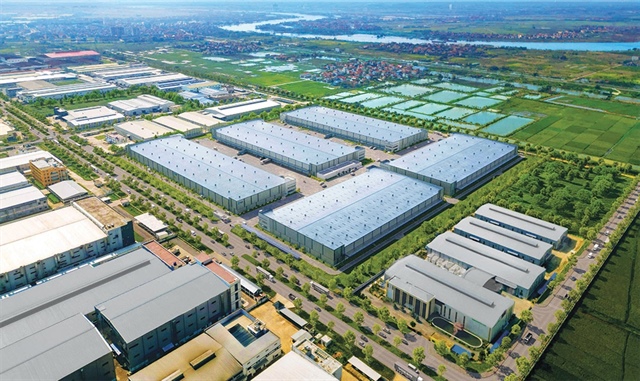
Factors boosting the expansion of eco-industrial parks |
How has the global eco-IP initiative and the current circular economy approach in Vietnam contributed to the creation of eco-IPs?
In November 2024, the former Ministry of Planning and Investment received a budget of $3.3 million, funded by Switzerland's State Secretariat for Economic Affairs. This funding aims to encourage circular economy practices and mitigate the impacts of climate change in Vietnam’s IPs.
The grant will facilitate the nationwide replication of the eco-IP model, building on successes since 2014, boosting the circular economy in the industrial sector and IPs, reducing the environmental impact of production activities, and supporting IPs in addressing climate change.
An example relating to efforts to boost the circular economy is to complete regulations on treated wastewater for irrigation, which is one of the main concerns of businesses.
According to the regulations, the Ministry of Agriculture and Environment issues the standards for using treated wastewater. Currently, there are standards for reusing treated wastewater in the livestock sector, but not yet for the industrial production sector. We are collaborating with the ministry to contribute to policy improvement by developing scientific reports to explain and clarify the need for such standards and the demand for using treated wastewater for irrigation.
Along with that, we would like to contribute to completing the policy for the application of rooftop solar systems at IPs, as well as green finance policies.
- 10:58 04/06/2025







